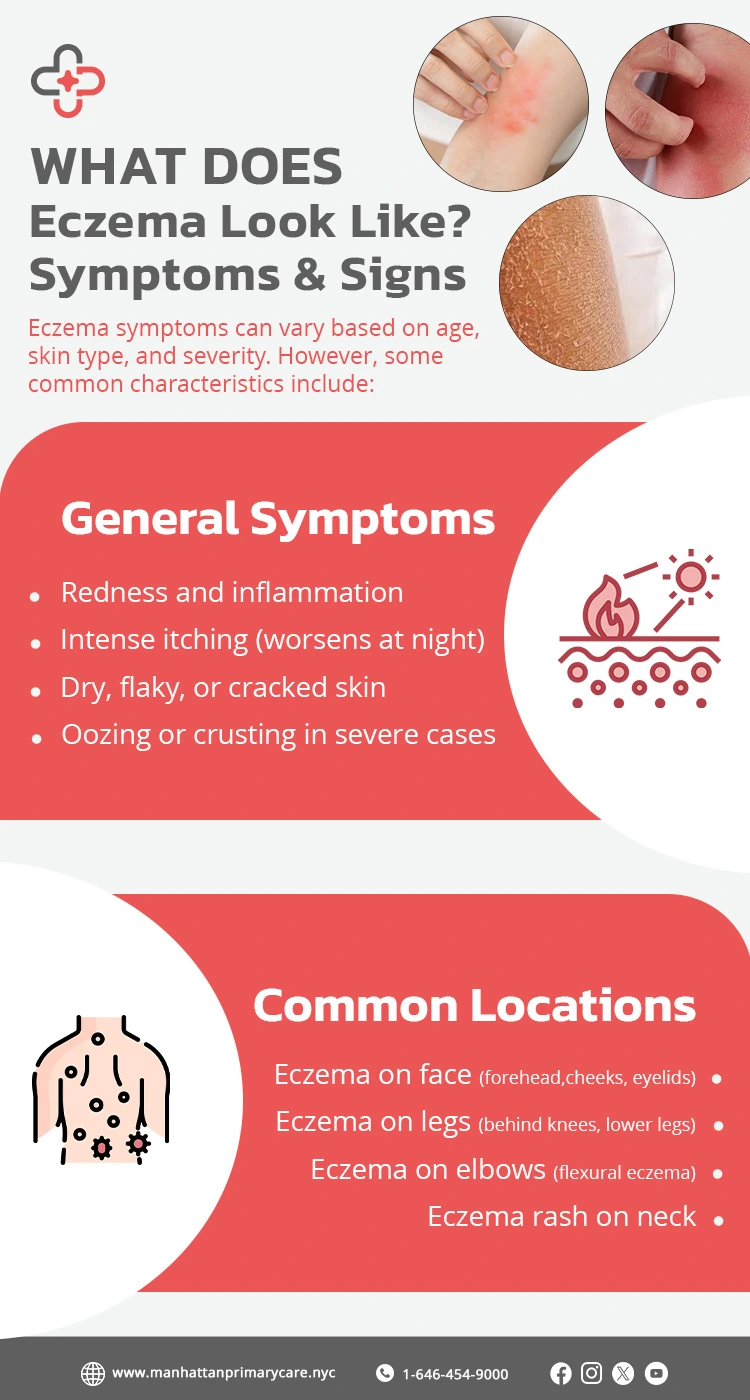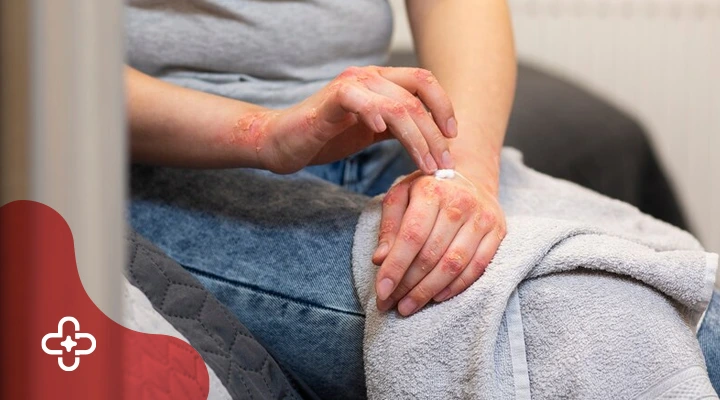Have you ever experienced an itch that just won’t go away? You scratch, hoping for relief, but instead, your skin turns red, inflamed, and flaky. Could it be simple dryness, or is it eczema? If this sounds familiar, you’re not alone.
Eczema, also known as atopic dermatitis, is a widespread but often misunderstood skin condition that affects millions worldwide.
These are some of the most common questions people have when dealing with persistent skin irritation. While there’s no quick fix, eczema can be managed effectively with the right treatments and skincare routine. In this guide, we’ll explore everything you need to know to control flare-ups and achieve healthier skin.
What Is Eczema? Understanding This Common Skin Condition
Eczema is a chronic inflammatory skin condition characterized by redness, itching, and irritation. Unlike simple dry skin, eczema is an immune response issue that makes the skin more sensitive and prone to flare-ups.
Key Facts:
- Atopic dermatitis is the most common form of eczema, often linked to allergies and asthma.
- Eczema affects people of all ages but is particularly prevalent in infants and young children.
- Symptoms can range from mild to severe, and flare-ups can be triggered by various factors, including allergens and environmental changes.
What Does Eczema Look Like? Symptoms & Signs
Eczema symptoms can vary based on age, skin type, and severity. However, some common characteristics include:


General Symptoms:
- Redness and inflammation
- Intense itching (worsens at night)
- Dry, flaky, or cracked skin
- Oozing or crusting in severe cases
Common Locations:
- Eczema on face (forehead, cheeks, eyelids)
- Eczema on legs (behind knees, lower legs)
- Eczema on elbows (flexural eczema)
- Eczema rash on neck
What Causes Eczema? Is Eczema Genetic?
Eczema isn’t contagious, but it does have a genetic component. If a parent has eczema, asthma, or hay fever, their child is more likely to develop it.
Common Triggers:
- Allergens: Dust, pollen, pet dander
- Irritants: Soaps, fragrances, synthetic fabrics
- Climate changes: Cold weather, high humidity
- Dietary factors: Some people react to dairy or gluten
Types of Eczema: Which One Do You Have?
There are several types of eczema, each with unique characteristics:
- Atopic Dermatitis (Most common, often genetic)
- Contact Dermatitis (Triggered by allergens/irritants)
- Nummular Eczema (Coin-shaped patches on skin)
- Dyshidrotic Eczema (Blisters on hands and feet)
- Seborrheic Dermatitis (Affects scalp, face, chest—often confused with dandruff)
- Flexural Eczema (Common in skin folds like behind knees, elbows, and neck)
How to Treat Eczema: The Best Eczema Treatments
While there’s no cure for eczema, treatments can help control symptoms and prevent flare-ups. Effective chronic disease management strategies, including medical treatments and lifestyle changes, are essential for long-term relief.
Skincare Routine:
- Use fragrance-free moisturizers (ceramide-based creams work best).
- Avoid hot showers (lukewarm water is better).
- Choose gentle, sulfate-free cleansers.
Medical Treatments:
- Topical Steroids – Reduce inflammation. As part of chronic disease management, these medications help control flare-ups and provide relief.
- Calcineurin Inhibitors – Non-steroid options for sensitive areas (eyelids, face).
- Biologics (Dupixent) – New FDA-approved treatment for severe eczema.
- Oral Medications – Antihistamines for itch, antibiotics for infection.
Natural Remedies for Eczema:
- Oatmeal baths – Soothes irritated skin.
- Coconut oil or sunflower seed oil – Provides hydration.
- Probiotics – Helps balance gut health.
Can Eczema Spread? Common Myths & Facts
Let’s debunk some common misconceptions:
- Myth: Eczema is contagious.
- Fact: It’s not! Eczema is an immune response issue, not an infection.
- Myth: Scratching makes eczema spread.
- Fact: Scratching worsens inflammation but doesn’t “spread” the condition.
How to Cure Eczema Permanently: Is There a Solution?
While eczema has no one-size-fits-all cure, dermatologists emphasize that long-term management is essential for maintaining healthy skin. The key to controlling eczema lies in identifying and avoiding triggers that may cause flare-ups, such as allergens, harsh soaps, or climate changes. Sticking to a consistent skincare routine, including regular moisturizing with fragrance-free products and using gentle cleansers, can help prevent dryness and irritation.
For severe cases, seeking medical treatments like topical steroids, biologics, or antihistamines under the guidance of a dermatologist is crucial. By following these strategies, individuals with eczema can significantly improve their skin condition and overall quality of life.
Conclusion:
Eczema is a lifelong condition, but with proper management, it doesn’t have to control your life. While there is no instant cure, it is highly manageable through medical treatments, lifestyle adjustments, and a consistent skincare routine. Identifying triggers, moisturizing regularly, and seeking appropriate medical care can significantly reduce flare-ups and discomfort.
If you or a loved one is struggling with eczema, relief is possible. Manhattan Primary Care offers expert dermatological care tailored to your needs, helping you achieve healthier, more comfortable skin.
Frequently Asked Questions
Is eczema bacterial or fungal?
Eczema is not bacterial or fungal; it is an inflammatory skin condition. However, broken skin can develop infections from bacteria or fungi.
Does vitamin D help eczema?
Vitamin D supports immune function and may help reduce inflammation, potentially improving eczema symptoms.
Is there a connection between sleep quality and eczema flare-ups?
Yes, poor sleep can increase inflammation and stress, worsening eczema symptoms.
Can eczema affect mental health?
Yes, eczema can cause stress, anxiety, and low self-esteem due to persistent itching and visible symptoms.
Can stress make eczema worse, and how can I manage it?
Stress can trigger flare-ups. Managing it through mindfulness, exercise, and relaxation techniques can help.
Disclaimer
This blog is for informational & educational purposes only and does not intend to substitute any professional medical advice or consultation. For any health-related concerns, please consult with your physician, or call 911.
